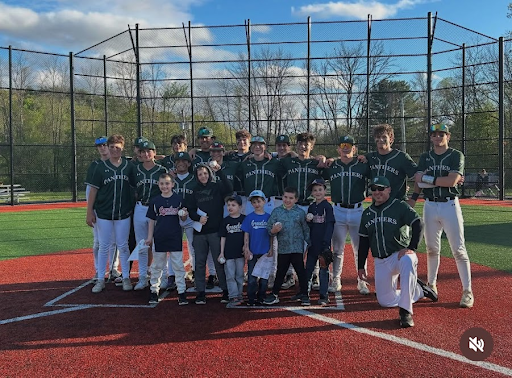E-rybody Get Up In Arms

The popular song “Blurred Lines” by Robin Thicke endorses that rape is okay.
The song has been played on the radio and included in popular TV award shows, but has anyone taken a moment to think about what the really lyrics say? The song suggests that one should assume a woman wants sex even if she has already said no. Thicke goes as far as to say, “I know you want it,” but in reality he is not in his target’s head and does not know what she is thinking. Though media loves to romanticize persistence, in real life no means no. If someone declines sexual or romantic advances then the advancer needs to step off. Project Unbreakable, an organization that that aims to raise awareness of sexual assaults and encourage healing through art, took a stand against the pop song in a recent campaign. The campaign is a series of images of sexual assault victims holding up signs of what their rapist said to them just before the assault. Thicke’s lyrics are eerily similar to these words that came straight from the rapist’s mouth. In fact, many of them are the exact same thing.
http://www.psmag.com/culture/mouths-rapists-lyrics-robin-thickes-blurred-lines-66569/
When it comes to consent there is no such thing as the “blurred line” as Thicke claims. Consent means an enthusiastic and sober yes. When someone is intoxicated they are not able to consent and the lack of understanding this concept in recent years has led to many college men raping women at parties. Every two minutes someone is sexually assaulted. That terrible number is only from the 56% of assaults that are actually reported to the police. One in six women has been the victim of attempted or completed rape. Survivors of rape are 6 times more likely to suffer from Post Traumatic Stress Disorder and are four times more likely to commit suicide. As a culture it is important for rape survivors and future generations that we take rape as a serious issue and do not allow the media to glamourize it.
“How Often Does Sexual Assault Occur?”. RAINN. September 11 2013 < http://www.rainn.org/get-information/statistics/frequency-of-sexual-assault>





Thora Fink • Dec 4, 2013 at 11:21 pm
This song never fails to disgust me, because all I can think of is how awful and degrading it is. I’m honestly surprised at how popular it is, and like Julie I find it unnerving how many views it gets and how much it plays on the radio. It’s literally rape culture, packaged in an otherwise pleasant-sounding, radio-friendly tune. A song that sounds friendly to the ears, but is about one of the most vile things humanity has to offer, and makes it sound okay. No will always mean no- just because the person is drunk, drugged, or otherwise not at their full capacity, does NOT make it opposite day where no means yes or that a person is allowed to just waltz in and simply “take what they want”, and “Blurred Lines” just adds to the messages that rape victims get that tell them that they are responsible for what happened, and that they simply had it coming.
Julie Stasiuk • Oct 17, 2013 at 9:09 am
I totally agree with this argument. I always felt that this song and the video especially is really weird and not fun but degrading to women. What also scares me about this video is how many views it has and how popular this song got on iTunes making it seem like the subject matter is okay when it is definitely not .
Brit lit ducolon